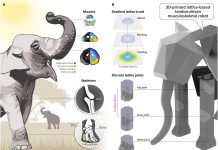
Artificial Intelligence (AI) has become a vital tool for infectious disease researchers in just five years, accelerating progress in medical science and public health.
This interdisciplinary field melds knowledge of life sciences, computation, chemistry, and design to combat and halt the spread of infectious diseases.
Infectious diseases, caused by organisms like parasites, viruses, bacteria, and fungi, pose an escalating global challenge due to increased interconnectivity, climate change, drug resistance, and uneven resource distribution.
However, according to Cesar de la Fuente, Presidential Assistant Professor at the University of Pennsylvania School of Engineering and Applied Science, and co-authors Felix Wong and James J. Collins from MIT, AI is transforming how researchers approach infectious diseases in three primary areas: anti-infective drug discovery, infection biology, and diagnostics.
AI in Drug Discovery
The use of AI in drug discovery has brought significant advancement to the field. Sophisticated algorithms and machine learning can analyze vast data sets, identifying patterns that human researchers might overlook.
This data-centric approach streamlines the screening and selection of potential drugs, fast-tracking the development of effective treatments for infectious diseases.
AI in Infection Biology
AI’s ability to analyze complex biological data aids in understanding the intricate interactions between infectious organisms and the host immune system.
This enhanced understanding provides vital insights into disease mechanisms, transmission dynamics, and host-pathogen interactions, thereby guiding the development of targeted interventions and preventive strategies.
AI in Diagnostics
AI is also revolutionizing diagnostics. Machine learning algorithms can analyze medical imaging, genomic data, and clinical records to detect and predict disease outcomes accurately.
This transformative capability enables earlier and more accurate diagnoses, facilitating timely treatment interventions and reducing the spread of infectious diseases.
The incorporation of AI into the infectious disease research field represents a promising path toward quicker drug discovery, more comprehensive biological understanding, and improved diagnostics.
These advancements are expected to play a crucial role in addressing the persistent and growing challenges of infectious diseases worldwide.
If you care about inflammation, please read studies about the big cause of inflammation in common bowel disease, and vitamin B may help fight COVID-19 and reduce inflammation.
For more information about nutrition, please see recent studies about new way to halt excessive inflammation, and results showing this diet may help reduce inflammation in COVID-19.
The study was published in Science.
Follow us on Twitter for more articles about this topic.
Copyright © 2023 Knowridge Science Report. All rights reserved.



